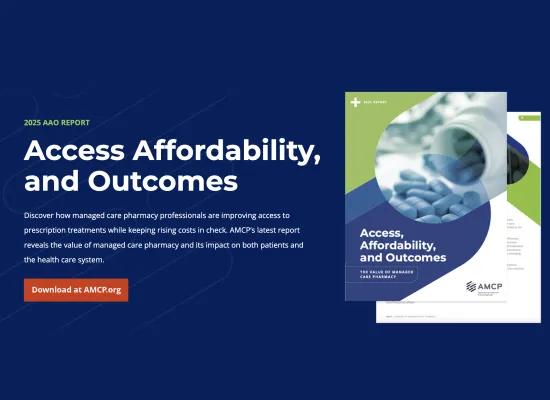
Proper Use of Low-Dose Aspirin Can Prevent Cardiac Events and Lower Costs, But Use in Clinical Practice Lags Behind Guidelines: JMCP
Alexandria, Va., Nov. 1, 2018 — Appropriate low-dose aspirin utilization for primary and secondary cardiovascular event prevention can result in improved patient outcomes with significant cost savings for U.S. payers. But research suggests that current aspirin utilization in clinical practice lags behind recommended guidelines, according to a study in this month’s issue of the Journal of Managed Care & Specialty Pharmacy (JMCP), the scientific journal of the Academy of Managed Care Pharmacy.
Cardiovascular disease remains the No.1 cause of death in the United States, with heart conditions and stroke contributing $116.3 billion and $17.5 billion in direct medical costs, respectively, in 2011.
The JMCP study, “Budget Impact of Appropriate Low-Dose Aspirin Utilization for Primary and Secondary Cardiovascular Event Prevention in the Managed Care Setting,” examined rates of recommended low-dose aspirin utilization compared with current rates in a hypothetical health plan of 1 million members.
For primary cardiovascular event prevention, an estimated 18,026 patients were on aspirin therapy, while guidelines recommend that 55,788 patients should be on aspirin therapy, according to the study. Optimal aspirin use reduced the number of nonfatal myocardial infarctions (MIs) (–367), ischemic strokes (–232), and deaths (–60), with an increase in the number of gastrointestinal bleeds (+169) and hemorrhagic strokes (+98).
Appropriate use of aspirin in this population resulted in total cost savings of roughly $4.2 million dollars over a 5-year period, the study found.
For secondary cardiovascular event prevention, an estimated 48,663 patients were on aspirin, while clinical guidelines recommend that 71,316 patients should be on the therapy. Optimal aspirin use reduced the number of nonfatal MIs (–515), ischemic strokes (–375), and deaths (–217), with an increase in the number of gastrointestinal bleeds (+98) and hemorrhagic strokes (+58).
Appropriate use of aspirin in this population resulted in total cost savings of roughly $11 million dollars over a 5-year period, according to the study.
“Aspirin is an under-utilized, cost-effective, and easily accessible therapy for the prevention of primary and secondary cardiovascular events,” says author Rashad Carlton, PharmD, MSPH, Associate Director, Global Health Economics & Outcomes Research at Xcenda, an AmerisourceBergen company. “Our research shows that appropriate use of low-dose aspirin can result in both a reduced risk of cardiovascular events as well as significant financial savings to U.S. payers; and therefore, its use in compliance with current clinical guidelines should be encouraged.”
To read the study, visit here.
About JMCP
The Journal of Managed Care & Specialty Pharmacy (JMCP) is the scientific journal of the Academy of Managed Care Pharmacy. JMCP publishes peer-reviewed original research manuscripts, subject reviews, and other content intended to advance the use of the scientific method, including the interpretation of research findings in managed care pharmacy. It is dedicated to improving the quality of patient care by providing its readers with the results of scientific investigation and evaluation of clinical, health, service, and economic outcomes of pharmacy services and pharmaceutical interventions, including formulary management. www.jmcp.org.
Featured News & Resources
See Full CalendarAward Applications Open
AMCP eLearning Day: Nexus Encore
AMCP 2026 Registration Opens
Upcoming Events
AMCP offers a wide variety of educational opportunities, from events and webinars to online training.







